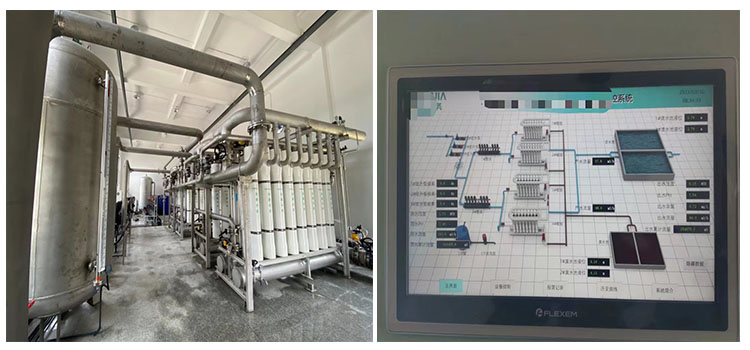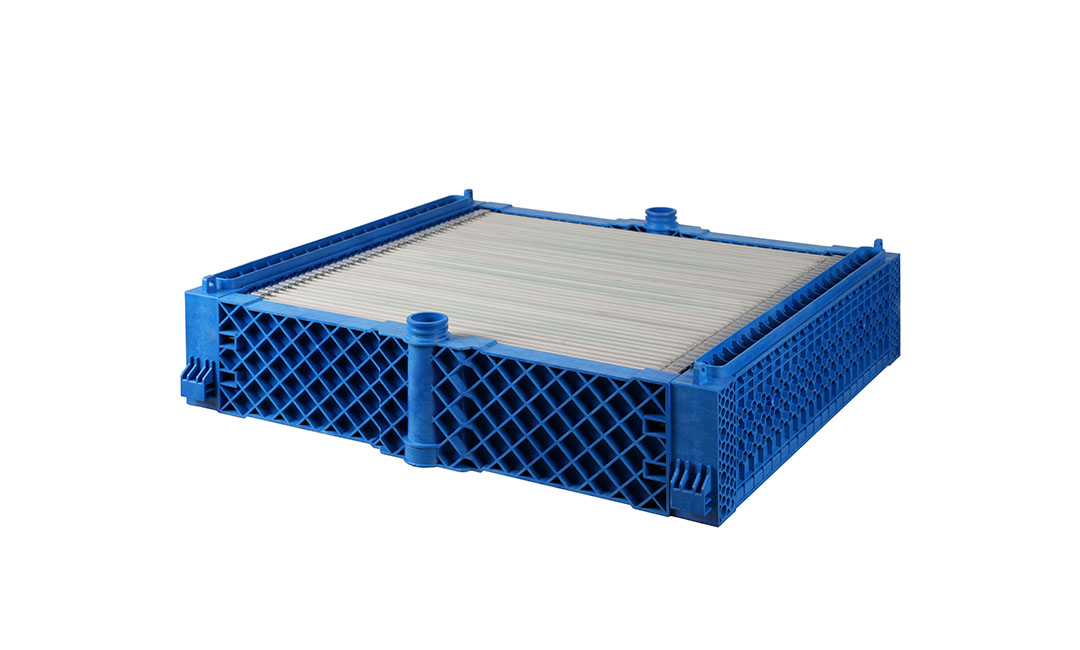Advances in Silicon Carbide Membrane Reactor Technology
Silicon carbide membrane reactors have emerged as a pivotal innovation in the field of chemical processing, significantly enhancing efficiency and sustainability. These advanced reactors leverage the unique properties of silicon carbide, a material known for its exceptional thermal stability, chemical resistance, and mechanical strength. As industries strive to meet increasing demands for energy efficiency and reduced environmental impact, the role of silicon carbide membrane reactors becomes increasingly critical.
One of the most notable advances in silicon carbide membrane reactor technology is the development of high-performance membranes that facilitate selective permeability. These membranes allow specific reactants to pass through while retaining unwanted byproducts, thereby improving the overall yield of chemical reactions. This selectivity not only enhances the efficiency of the process but also minimizes the need for extensive downstream separation techniques, which can be energy-intensive and costly. As a result, the integration of silicon carbide membranes into chemical reactors represents a significant step forward in optimizing reaction conditions and maximizing product output.
Moreover, the thermal properties of silicon carbide enable these reactors to operate at elevated temperatures, which is particularly advantageous for endothermic reactions. By maintaining high temperatures, silicon carbide membrane reactors can drive reactions that would otherwise be thermodynamically unfavorable at lower temperatures. This capability not only accelerates reaction rates but also contributes to the overall energy efficiency of the process. Consequently, industries can achieve higher throughput while reducing energy consumption, aligning with global sustainability goals.
In addition to their thermal advantages, silicon carbide membrane reactors exhibit remarkable resistance to corrosive environments. This characteristic is particularly beneficial in chemical processing, where harsh conditions often lead to equipment degradation and increased maintenance costs. The durability of silicon carbide membranes ensures a longer operational lifespan, reducing downtime and enhancing the reliability of chemical production. As a result, manufacturers can achieve consistent product quality while minimizing operational disruptions, ultimately leading to cost savings and improved profitability.
Recent advancements in fabrication techniques have also played a crucial role in the evolution of silicon carbide membrane reactors. Innovations in additive manufacturing and precision engineering have enabled the production of complex membrane structures that optimize flow dynamics and enhance mass transfer. These advancements allow for the design of reactors that are not only more efficient but also tailored to specific chemical processes. By customizing reactor configurations, engineers can fine-tune reaction conditions to achieve desired outcomes, further pushing the boundaries of chemical processing capabilities.
Furthermore, the integration of silicon carbide membrane reactors with other technologies, such as catalysis and process intensification, has opened new avenues for research and development. The combination of these technologies can lead to synergistic effects, resulting in enhanced reaction rates and selectivity. For instance, coupling silicon carbide membranes with catalytic processes can facilitate simultaneous reaction and separation, streamlining operations and reducing the overall footprint of chemical plants.
As the demand for sustainable and efficient chemical processing continues to grow, the role of silicon carbide membrane reactors is poised to expand. Ongoing research and development efforts are focused on further improving membrane performance, exploring new applications, and optimizing reactor designs. The potential for silicon carbide membrane reactors to revolutionize chemical processing is immense, offering a pathway toward more sustainable practices that align with the principles of green chemistry. In conclusion, the advances in silicon carbide membrane reactor technology not only enhance the efficiency and sustainability of chemical processes but also pave the way for innovative solutions that address the challenges faced by the industry today.
Benefits of Using Silicon Carbide Membrane Reactors in Chemical Processing
Silicon carbide membrane reactors have emerged as a transformative technology in the field of chemical processing, offering a range of benefits that enhance efficiency, sustainability, and product quality. One of the primary advantages of these reactors is their ability to facilitate simultaneous reaction and separation processes. This integration significantly reduces the number of unit operations required in traditional chemical processing, leading to a more compact and efficient system. By combining reaction and separation, silicon carbide membrane reactors minimize energy consumption and capital costs, making them an attractive option for industries seeking to optimize their operations.
Moreover, silicon carbide membranes exhibit exceptional thermal and chemical stability, which is crucial in harsh processing environments. This stability allows for the handling of aggressive chemicals and high temperatures without compromising the integrity of the reactor. As a result, these reactors can operate under conditions that would typically degrade other materials, thereby extending their lifespan and reducing maintenance costs. The durability of silicon carbide also contributes to the overall reliability of the chemical processing system, ensuring consistent performance over time.
Another significant benefit of silicon carbide membrane reactors is their ability to enhance selectivity in chemical reactions. The unique properties of silicon carbide membranes enable precise control over the permeation of reactants and products, which can lead to improved yields and reduced by-product formation. This selectivity is particularly advantageous in processes where the separation of specific components is critical, such as in the production of fine chemicals and pharmaceuticals. By optimizing the reaction environment, these reactors can help manufacturers achieve higher purity levels in their final products, which is essential for meeting stringent regulatory standards.
In addition to improving selectivity and efficiency, silicon carbide membrane reactors contribute to sustainability in chemical processing. The integration of reaction and separation processes not only reduces energy consumption but also minimizes waste generation. By streamlining operations, these reactors can help companies lower their carbon footprint and adhere to environmental regulations more effectively. Furthermore, the ability to operate at higher temperatures and pressures can enhance reaction kinetics, leading to faster production rates and reduced resource consumption. This aligns with the growing emphasis on sustainable practices within the chemical industry, where reducing environmental impact is becoming increasingly important.
The versatility of silicon carbide membrane reactors also deserves mention, as they can be applied to a wide range of chemical processes, including gas-phase reactions, liquid-phase reactions, and even bioprocessing applications. This adaptability makes them suitable for various industries, from petrochemicals to food processing, thereby broadening their appeal. As companies seek innovative solutions to meet evolving market demands, the flexibility of silicon carbide membrane reactors positions them as a valuable asset in the quest for efficiency and sustainability.
In conclusion, the benefits of using silicon carbide membrane reactors in chemical processing are manifold. Their ability to integrate reaction and separation processes leads to significant reductions in energy consumption and operational costs. The exceptional stability of silicon carbide materials ensures reliable performance in challenging environments, while enhanced selectivity contributes to higher product quality. Additionally, these reactors promote sustainability by minimizing waste and resource use, making them an essential component of modern chemical processing strategies. As industries continue to evolve, the role of silicon carbide membrane reactors is likely to expand, driving innovation and efficiency in chemical manufacturing.
Future Trends in Silicon Carbide Membrane Reactor Applications
Silicon carbide membrane reactors are a cutting-edge technology that is revolutionizing the field of chemical processing. These reactors offer numerous advantages over traditional reactors, including higher efficiency, improved selectivity, and reduced energy consumption. As a result, they are becoming increasingly popular in a wide range of industries, from petrochemicals to pharmaceuticals.
One of the key benefits of silicon carbide membrane reactors is their ability to perform multiple functions simultaneously. These reactors can act as both a catalyst and a membrane, allowing for the integration of reaction and separation processes in a single unit. This not only simplifies the overall process but also reduces the need for additional equipment, leading to cost savings and increased productivity.
Furthermore, silicon carbide membrane reactors are highly resistant to harsh operating conditions, such as high temperatures and corrosive environments. This makes them ideal for use in demanding chemical processes where traditional reactors may fail. Additionally, the high thermal conductivity of silicon carbide allows for rapid heat transfer, resulting in faster reaction rates and improved product yields.
Another advantage of silicon carbide membrane reactors is their scalability. These reactors can be easily scaled up or down to accommodate different production volumes, making them suitable for both small-scale research applications and large-scale industrial processes. This flexibility allows for greater adaptability and efficiency in chemical processing operations.
In addition to their technical advantages, silicon carbide membrane reactors also offer environmental benefits. By improving process efficiency and reducing energy consumption, these reactors help to minimize the environmental impact of chemical processing operations. This is particularly important in today’s world, where sustainability and environmental responsibility are top priorities for many industries.

Looking ahead, the future of silicon carbide membrane reactors looks promising. As research and development in this field continue to advance, new applications and capabilities for these reactors are being discovered. For example, researchers are exploring the use of silicon carbide membranes in the production of hydrogen fuel cells, where they could help to improve efficiency and reduce costs.

Furthermore, advancements in materials science and manufacturing techniques are leading to the development of even more durable and efficient silicon carbide membranes. These improvements will further enhance the performance and reliability of membrane reactors, making them an even more attractive option for chemical processing applications.
Overall, silicon carbide membrane reactors are poised to play a key role in the future of chemical processing. Their unique combination of efficiency, versatility, and environmental benefits make them an ideal choice for a wide range of industries. As research and development in this field continue to progress, we can expect to see even greater advancements in the capabilities and applications of silicon carbide membrane reactors.

